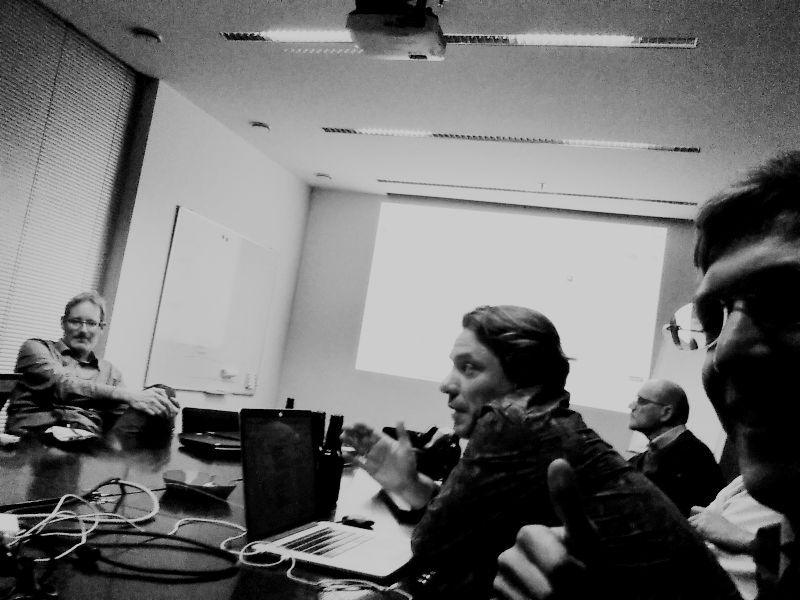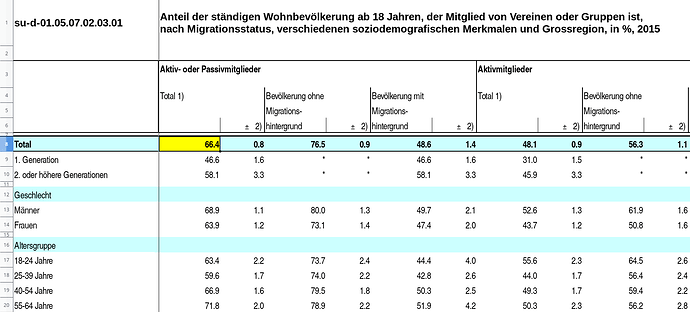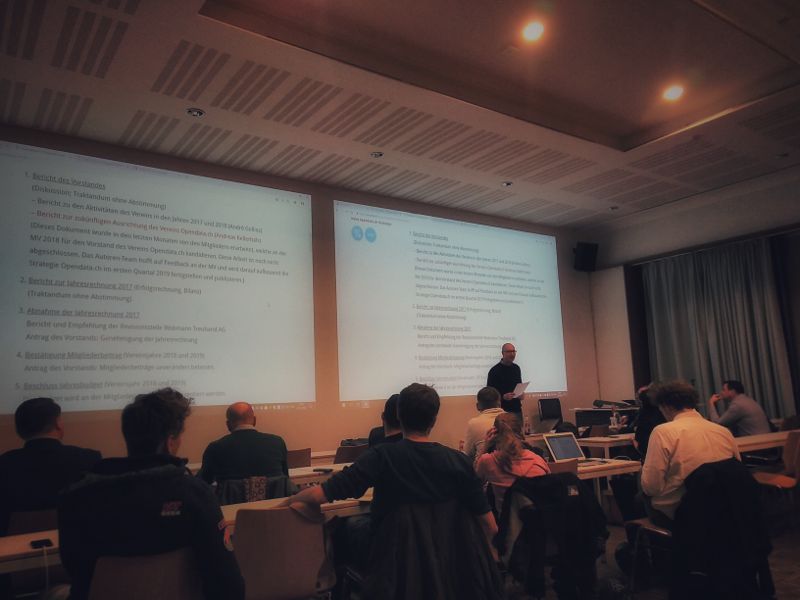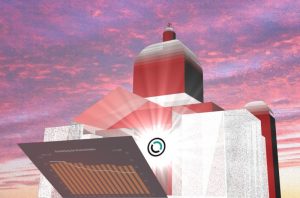On November 14, 2017, the Opendata.ch, Swiss chapter of Open Knowledge, held a workshop at Volkhaus Zürich to discuss the progress of the association since founding in 2012, the challenges in front of us, and possible scenarios in the future. Some rough stats on the workshop participants:
| Total: | 25 |
| Directors: | 7 |
| Female: | 5 |
| Government: | 6 |
| Academic: | 8 |
| Industry: | 9 |
Commentary
- The association has done an enormous amount of work over the past 5 years, benefitting primarily from the voluntary contributions of the community and Board.
- The wider public still does not know what open data is. Though actually this was not a stated goal of the association charter / events - our press log argues that open data is already a part of public discourse.
- It’s time for more people to have open data as part of their job. Implied are government job postings in St. Gallen earlier this week specifically mentioning open data.
- We need to continue to better clarify this complex and wide branching topic. More support needed for people in education.
- Open data needs to be linked to central knowledge bases. Data portals are a good start, but distributed data infrastructures are still at a basic level.
- Data standards need to be developed with care. Open Data CH community and the research community are running in parallel, also on an EU level we could do a lot to connect the dots.
- One might think that we have missed our chance. Lots of future oriented needs being discussed. Our top concerns seems to be to „strengthen“, „clarify“, assess „risks“.
- The core feature is to engage above and beyond the demand of the public.
- The variety of skills and projects is unique (also among neighbouring countries) and needs to be protected.
- We need to think about the priorities of institutions, compare and contrast to other associations and companies. This will create space for new pioneering work. But first we need to decide if we are dedicated to supporting the institutions or new ventures.
- It is a generational challenge that at the administrations cannot be accomplished without more infrastructure, better standards, clearer policy / processes.
- Open data needs to be more than a „nice to have“, and the industry needs to be involved. There are a lot of government datasets around, but it takes a lot more effort for them to be made useful.
Scenarios
The following scenarios were discussed and debated. They will be further elaborated by the Task Force described further down.
- Watchdog // a minimal version of the association. A more intellectual activity, pointing out what is going well / less well over social media and other channels.
- Pilot Group // empowerment for private people, pilot projects with government
- User Group // what do we need so that we can work with open data
- Service Desk // maybe not an association any more, more of a support network
- Ramp Down // run the same program at reduced level to cope with demand
- Expert network // an extended version of #4
Community of Practice
A combination of User Group and Service Desk seems to be the one favored by most. Our discussion revolved around this proposal. Every member of the board has a clear thematic or functional role. 2 hours per week, 80% of the meetings.
- As a private person would engage, but employees will need sign-off from management.
- Questions if the existing members would be willing to step out and make room for a new board, the next generation of participants.
- We have spoken about this, the same people are active year after year - we need this commune („Gemeinschaft“) but it needs to function.
- If we are a „hardcore“ bunch of activists, I would say no, but if we are a professional association then definitely.
- We need clearer goals for this kind of scenario to be meaningful, and probably a clearer split between the political aspects and community.
- I may not be able to do this in my free time, need to clarify the legal requirements towards gov’t employees.
- What does it mean to be apolitical? Everything has a political dimension.
- A new board will need to decide whether it can be and remain a Swiss chapter [of Open Knowledge]. And if not, then there will be a new Swiss chapter.
- Open does not equal free, it costs money, it needs infrastructure.
- We need to clearly understand the boundaries between political from technical & social activism. Like the Arbeitskreis OGP in Germany, there is clear precedent for a Community of Practice.
- We should be more active in the age of lobbies, and have a clear, singular voice.
- Support community for discussing the critical questions is essential, as we cannot lobby the parliament contrary to our employer’s mandate.
- No redundancies, working closely with opendata.swiss and other projects.
- Redundancies are acceptable, as long as there is a connection.
- It’s a problem if multiple offers on contracts are made from people in the community, without chance for recourse or internal discussions.
- Internal transparency and mutual support through governance about % of work going into the association.
Organisational Reform
In this part of the discussion we addressed the issues of making our association more efficient & effective on a day-to-day basis.
- Suppose we need three groups: exponents of positions that need to be known, a political arm (Parldigi, SDA), and a watchdog (Digitale Gesselschaft).
- A key asset is organising the annual conference. But everyone is doing hackathons, so we should be more focused on having an expert role in existing hackathons and making sure that open data is well represented.
- Opendata.ch is a strong brand, e.g. the Tourism hackdays were a success, and we need to keep that in view. Perhaps the hackdays could just have a reduced priority.
- All kinds of events help build community, and if so they should be well supported.
- Look at the example of the Swiss Statistics Society, with the chapters underneath and working groups that organize the conference.
- The underrepresented communities should be prioritised for activism and networking.
- Could we have a task force (all directors + volunteers) discuss the suggestions and present a concrete proposal in February?
- The association is a vehicle for people who „want to do something“, so this activity is voluntary. But yes.
- We will pay for the infrastructure to take part in this Task Force. 7 people have currently signed up.
- Directors are encouraged but not obligated to take part in the Task Force.
- Will organise the next meeting in Bern around January.




